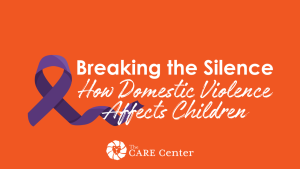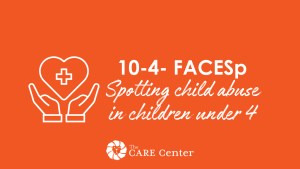As parents, caregivers, and educators, we all want to keep our children safe from harm. However, sometimes it can be challenging to know how to talk to them about difficult topics like abuse and neglect. That’s where the education team at The CARE Center comes in. They’re a group of dedicated professionals who travel to schools throughout Oklahoma County to teach prevention education to elementary classes. We recently had the opportunity to sit down with them and ask some questions about their important work. In this blog, we’ll share their insights and highlight some of the amazing things they do to help keep our children safe.
Director of Education, Shelby Lynch:
What advice do you have for teachers and parents who want to build a safe relationship with kids?
“For parents, I advise having the prevention conversation with their children early and often. It’s never too early to have this conversation with your child and to begin to implement basic consent and bodily autonomy in your household. Teaching this could be as simple as reminding their child that they need to ask someone for a hug before they give one. Or, if you’re playing with your child and they tell you to “stop,” respect what they say and stop what you’re doing. It’s important to remember that all children have rights, even our own. It’s important that parents respect what children say, just as parents expect children to respect what they say.
For teachers and school personnel, I advise them to set boundaries in their classrooms when it comes to touches and safe adults. We have been to several schools where students know that they do not have to give their teachers a hug if they ask, and teachers are often giving children choices in how they would like to be greeted in the mornings– whether that’s a wave, a high five, a fist bump, a fun dance, or a hug. Giving children a choice when it comes to touches is extremely important. Further, it’s important that children know that their teacher is a safe adult. Teachers can show their students that they are always in their corner, and will listen to them without judgment. For counselors and other school administrators, it is vital that your staff is properly trained in how to report suspected abuse and how to appropriately handle a child abuse disclosure. Often we find that the district-mandated training is simply not enough. We offer a free mandatory reporter training at The CARE Center and would love the opportunity to speak to your school staff about how to be better equipped to report suspected abuse.”
What do you think is your team’s biggest strength?
“The biggest strength of my team is their belief in our mission and our programs. Every person on my team fights daily for our programs to be offered to every child in Oklahoma County and beyond. We get excited when a new school decides to teach ROAR and get equally as excited when schools want to use our programming yearly. Another strength of my team are their hearts. We work hard to create bonds and real relationships with the counselors we work with and want them to feel supported by our services. We also have a heart for the children we teach. We want every ROAR we deliver to be our best ROAR possible, and want to give every child our full attention and respect. We truly love what we do!”
How has working at The CARE Center changed your perspective?
“Working at The CARE Center has helped me see systematic changes that need to occur before child abuse can end. At a minimum, organizations that work with victims desperately need and deserve more funding in order to operate efficiently and meet the needs of the families we serve. Our Victim Services team and Multi-Disciplinary team at large work tirelessly to assist these families and listen to our clients, but could do so much more with increased funding and support. Additionally, organizations that work in child abuse prevention need to work together to create a prevention trajectory that serves children 0-17 and offers support for struggling families. The work we do at The CARE Center is a great step in the child abuse prevention conversation, but we cannot do it alone. Working in silos doesn’t promote true change, but uniting forces and working together can.”
Molly Detamore, Education Coordinator:
What makes you so passionate about your job?
“As a teacher and former foster parent, I witnessed firsthand how abuse can affect young minds. I am passionate about educating both children and adults on the signs and symptoms of abuse so that we can put an end to abuse in Oklahoma!“
What advice do you have for victims afraid to seek help?
“I know it can be hard to seek help. Fear is one of the biggest hurdles to getting the help a victim may need. Remember how brave and loved you are by so many. I hope the services we provide at The CARE Center can help someone in that journey of feeling safe and comforted.“
Lourdes Ballesteros, Bilingual Education Coordinator:
What brought you to The CARE Center?
“The work the CARE center does is very near and dear to my heart and I feel a personal connection to the hope and healing we aim to provide, however my passion is education so the moment I found out there was a way to be a part of such an honorable larger mission while being able to fulfill my passion and teach within our community I knew the CARE Center was the place for me.”
Any advice for parents concerned about their kids safety?
“Don’t be afraid to reach out for help or an additional perspective! There are professionals who will hear you and listen to your concerns and lead you in the best direction with proper resources to ensure your child’s safety and well-being.”
Priscila Gurney, Education Coordinator:
What do you think is the best part about being able to provide services in Spanish and English?
“There is nothing quite like seeing kids’ faces light up when I start speaking Spanish because for the first time in their day at school they fully understand, or because they see themselves represented in a professional caring adult. The best part is simple, I get to bridge a gap for someone whether with ROAR or R&R by providing vital information in a way that they fully understand.”
Do you have a message for anyone who is hesitant on seeking help due to a language barrier?
“Hesitation in seeking services due to language is often coupled with fear of cultural differences. Cultural competence is a lifelong commitment and pursuit. The more investment being put into helping Child Advocacy Center staff and Multi-Disciplinary members engage with and truly understand the importance of providing culturally appropriate services, the better the experiences will be for families and the more likely they will be to seek out help.”
The education team at The CARE Center is doing amazing work to help keep our kids safe from harm. From teaching prevention education in schools to empowering kids with the knowledge and skills they need to speak up, they’re making a real difference in our community. We’re so grateful for everything they do, and we encourage you to learn more about their work or get involved if you can. Let’s all work together to create a safer world for our children!



